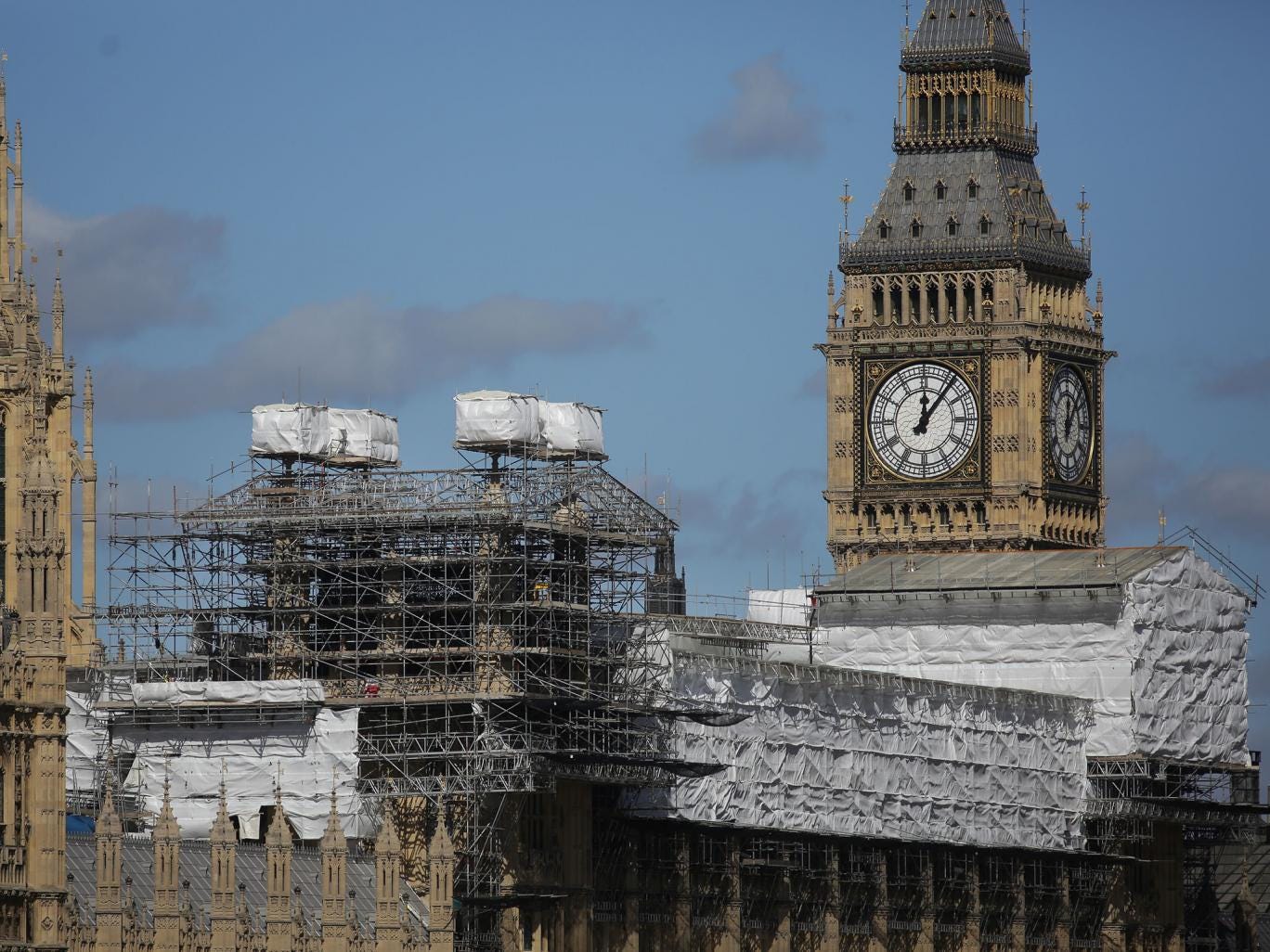The decision to let MPs and other legislators have extra protections was the first and for a long time only amendment made to the Bill
Repairs at Parliament AFP/Getty
Andrew Griffin • December 1, 2016 • 23 comments
Politicians have exempted themselves from Britain's new wide-ranging spying laws.
The Investigatory Powers Act, which has just passed into law, brings some of the most extreme and invasive surveillance powers ever given to spies in a democratic state. But protections against those spying powers have been given to MPs.
Most of the strongest powers in the new law require that those using them must be given a warrant. That applies to people wanting to see someone's full internet browsing history, for instance, which is one of the things that will be collected under the new law.
For most people, that warrant can be issued by a secretary of state. Applications are sent to senior ministers who can then approve either a targeted interception warrant or a targeted examination warrant, depending on what information the agency applying for the warrant – which could be anyone from a huge range of organisations – wants to see.
But for members of parliament and other politicians, extra rules have been introduced. Those warrants must also be approved by the prime minister.
That rule applies not only to members of the Westminster parliament but alos politicians in the devolved assembly and members of the European Parliament.
The protections afforded to politicians are actually less than they had hoped to be given. Earlier in the process, the only amendment that MPs had submitted was one that would allow extra safeguards for politicians – forcing any request to monitor MP's communications to go through the speaker of the House of Commons as well as the prime minister.
Please go to the Independent to read the entire article.

No comments:
Post a Comment
Note: Only a member of this blog may post a comment.